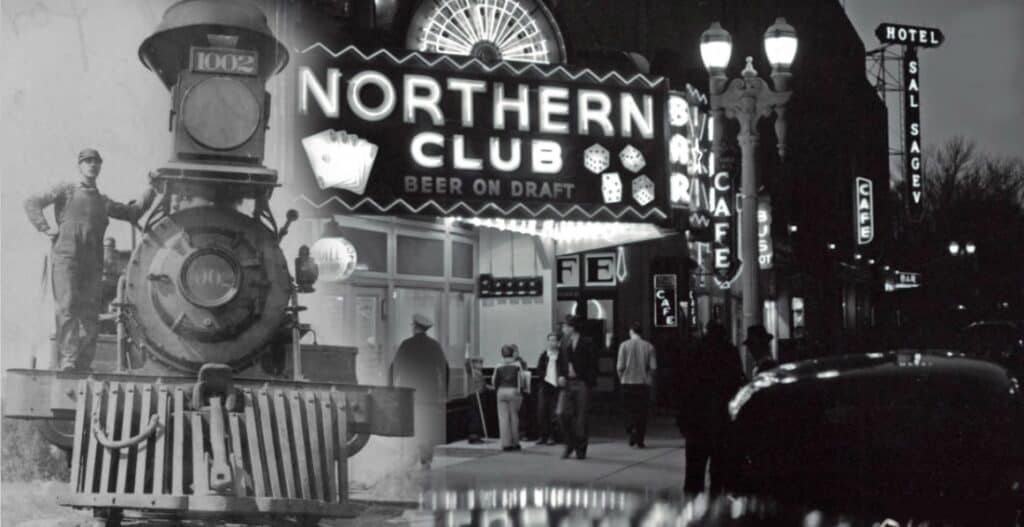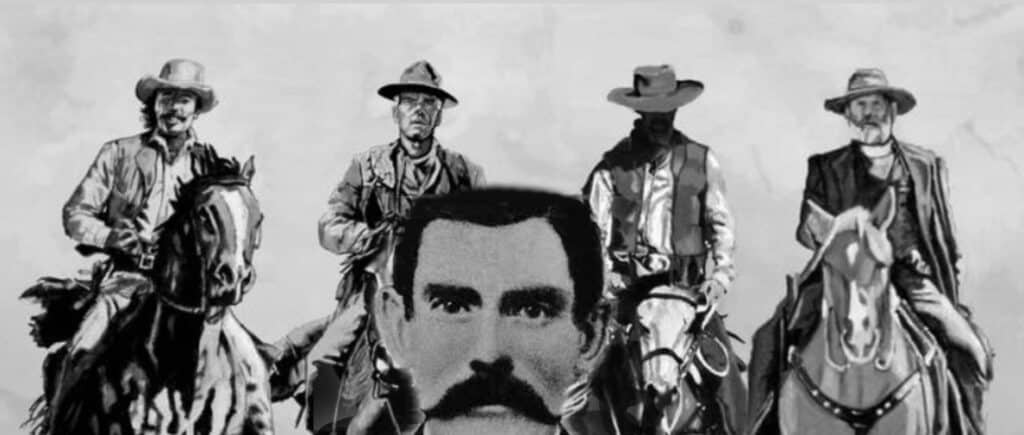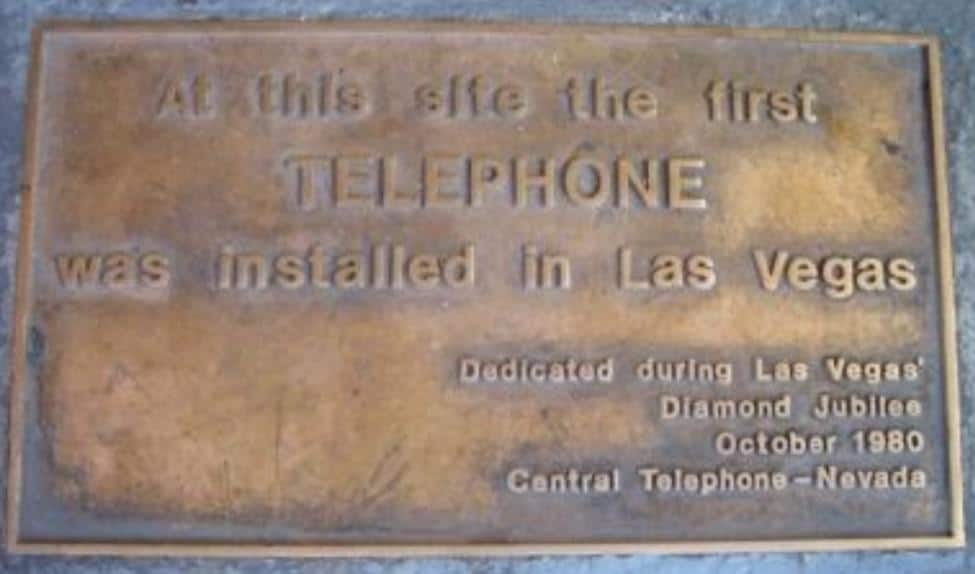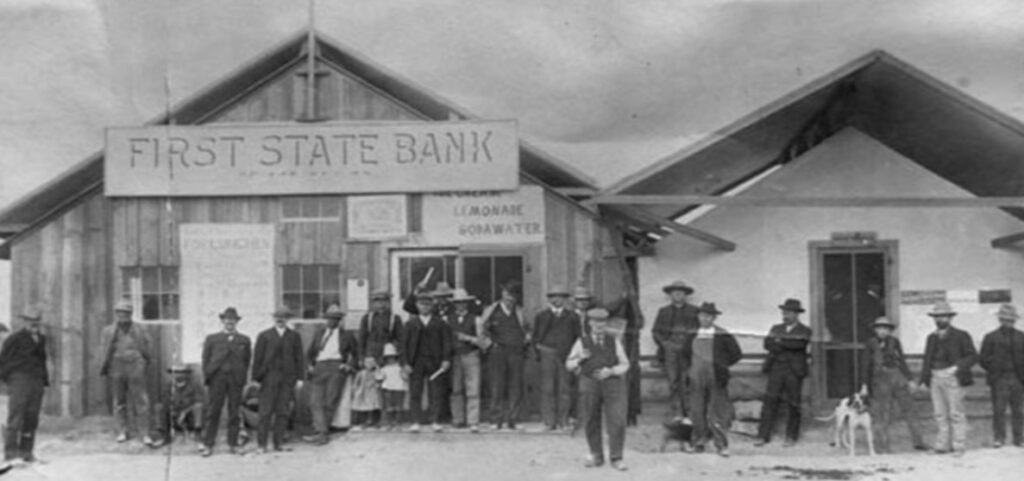
The Official Naming of Las Vegas 1905
The name Las Vegas is Spanish for “the meadows.” The area was named this way by Rafael Rivera, a member of the Spanish explorer Antonio Armijo’s trading party that was traveling to Los Angeles in 1829. Rivera named the valley Las Vegas after its spring-watered grasses.
The area was originally inhabited by the Mojave and Paiute tribes. In the early 1800s, it became a stopover for travelers on the Old Spanish Trail. In 1855, the Mormon Church established a small settlement in the area.
The city of Las Vegas was officially founded in 1905. It grew slowly at first, but it began to boom in the early 1930s after gambling was legalized in Nevada. The city’s population has grown from just over 1,000 in 1930 to over 670,000 today.
Las Vegas is now one of the most popular tourist destinations in the world. Millions of people visit the city each year to gamble, go to shows, and experience its unique atmosphere.
The name Las Vegas is a fitting one for the city. It is a place where people can come to relax and have fun.
From Remote Settlement to Urban Hub
Las Vegas remained a remote settlement for several decades, with its significance gradually evolving. It wasn’t until 1905 that the city was officially founded, marking a turning point in its importance to the creation of Clark County. The establishment of Las Vegas brought with it an influx of people seeking new opportunities in the expanding American West.
Birth of Clark County
The formation of Clark County was a direct result of Las Vegas’ emergence as a city. On February 5, 1909, the Nevada State Legislature established Clark County, with Las Vegas as its county seat. This pivotal decision solidified the connection between the city and the county, as Las Vegas became the administrative and economic center of the newly formed county. The city’s strategic location along the railroad routes and its growing population contributed to its role in shaping the county’s development.
Economic and Cultural
As Las Vegas continued to grow, it became a hub of economic activity and cultural exchange, further underscoring its significance in the creation of Clark County. The building and importance of the Hoover Dam in the 1930s brought a surge of workers to the area, stimulating economic growth and reinforcing the city’s position as a crucial focal point within the county.
Entertainment and Tourism Boom
In the mid-20th century, Las Vegas underwent a transformation that would significantly impact both the city and Clark County. The rise of the entertainment and tourism industries, driven by the proliferation of casinos, hotels, and iconic shows, turned Las Vegas into an internationally recognized destination. This boom in tourism brought enormous economic benefits not only to the city but to the entire county, creating jobs and opportunities for residents.
Urbanization and Modernization
As the decades progressed, Las Vegas became increasingly urbanized, with its metropolitan area expanding to encompass a substantial portion of Clark County. The city’s growth led to the development of infrastructure, educational institutions, and diverse communities, shaping the character of the county as a whole.
A Lasting Partnership
Throughout its history, Las Vegas has played a big role in the creation and evolution of Clark County. The city’s growth from a remote oasis to a bustling urban center has left an indelible mark on the county’s development, economy, and culture. The close partnership between Las Vegas and Clark County continues to influence the region’s trajectory, making it a dynamic and ever-evolving part of the American Southwest.
Diversification and Beyond
In recent decades, Las Vegas and Clark County have worked together to diversify their economies, recognizing the importance of reducing dependence on a single industry. While entertainment and tourism remain significant, the city and county have expanded their focus to areas such as technology, healthcare, education, and renewable energy. This diversification has not only strengthened the local economy but has also solidified the region’s resilience in the face of economic challenges.
Collaboration in Infrastructure and Services
The partnership between Las Vegas and Clark County goes beyond economic ties. The collaborative efforts in developing infrastructure, public services, and cultural amenities have benefited both residents and visitors. Investments in transportation, healthcare facilities, educational institutions, and community spaces have enhanced the quality of life for everyone in the county.
Las Vegas History

Las Vegas History: Railroad Development Paved the Way for Las Vegas to Become the Gambling Capital of the World

Las Vegas History: Doc Holliday Famous Gambler Gunslinger and Resident of Las Vegas

Las Vegas History: How Las Vegas’ First Telephone Exchange Made Bugsy Siegel’s Race Wire Possible

Las Vegas History: The Official Naming of Las Vegas 1905

Las Vegas History: 1864 Las Vegas The Impact of Nevada Statehood

Las Vegas History: Las Vegas and It’s Vices in the 1850s
Frequently Asked Questions (FAQs)
1. Who named Las Vegas, and what does the name mean?
Las Vegas was named by Rafael Rivera, a member of Antonio Armijo’s trading party, and it means “the meadows” in Spanish.
2. When was the city of Las Vegas officially founded, and what marked its establishment?
The city of Las Vegas was officially founded in 1905, signifying a shift from a remote settlement to an organized urban center.
3. How did the founding of Las Vegas contribute to the creation of Clark County?
The establishment of Las Vegas in 1905 played a pivotal role in the creation of Clark County, leading to its formation on February 5, 1909, with Las Vegas as its county seat.
4. What factors contributed to Las Vegas becoming an economic and cultural hub within Clark County?
Las Vegas’ strategic location, growth in population, and the economic stimulus from projects like the Hoover Dam in the 1930s contributed to its significance within Clark County.
5. How did the entertainment and tourism boom impact Las Vegas and Clark County?
The mid-20th-century rise of the entertainment and tourism industries, driven by casinos and shows, turned Las Vegas into an international tourist destination, benefiting the entire county economically.
6. What transformation did Las Vegas undergo as it became more urbanized?
Over the decades, Las Vegas evolved into an urban center, with the metropolitan area expanding to cover a substantial part of Clark County, leading to the development of infrastructure and diverse communities.
7. How has the partnership between Las Vegas and Clark County influenced the region’s trajectory?
Las Vegas’ growth and development have had a lasting impact on Clark County, shaping its economy, culture, and overall trajectory as a dynamic part of the American Southwest.
8. How have Las Vegas and Clark County diversified their economies in recent decades?
Recognizing the need to reduce dependence on a single industry, Las Vegas and Clark County have diversified their economies, expanding into areas such as technology, healthcare, education, and renewable energy.
9. What collaborative efforts have been made in infrastructure and services between Las Vegas and Clark County?
Beyond economic ties, collaborative efforts have been made in developing infrastructure, public services, and cultural amenities, enhancing the quality of life for residents and visitors alike.
10. How does the partnership between Las Vegas and Clark County contribute to the region’s resilience and adaptability?
The ongoing collaboration between Las Vegas and Clark County, spanning economic diversification, infrastructure development, and community services, contributes to the region’s resilience in the face of economic challenges and ensures adaptability to changing circumstances.





